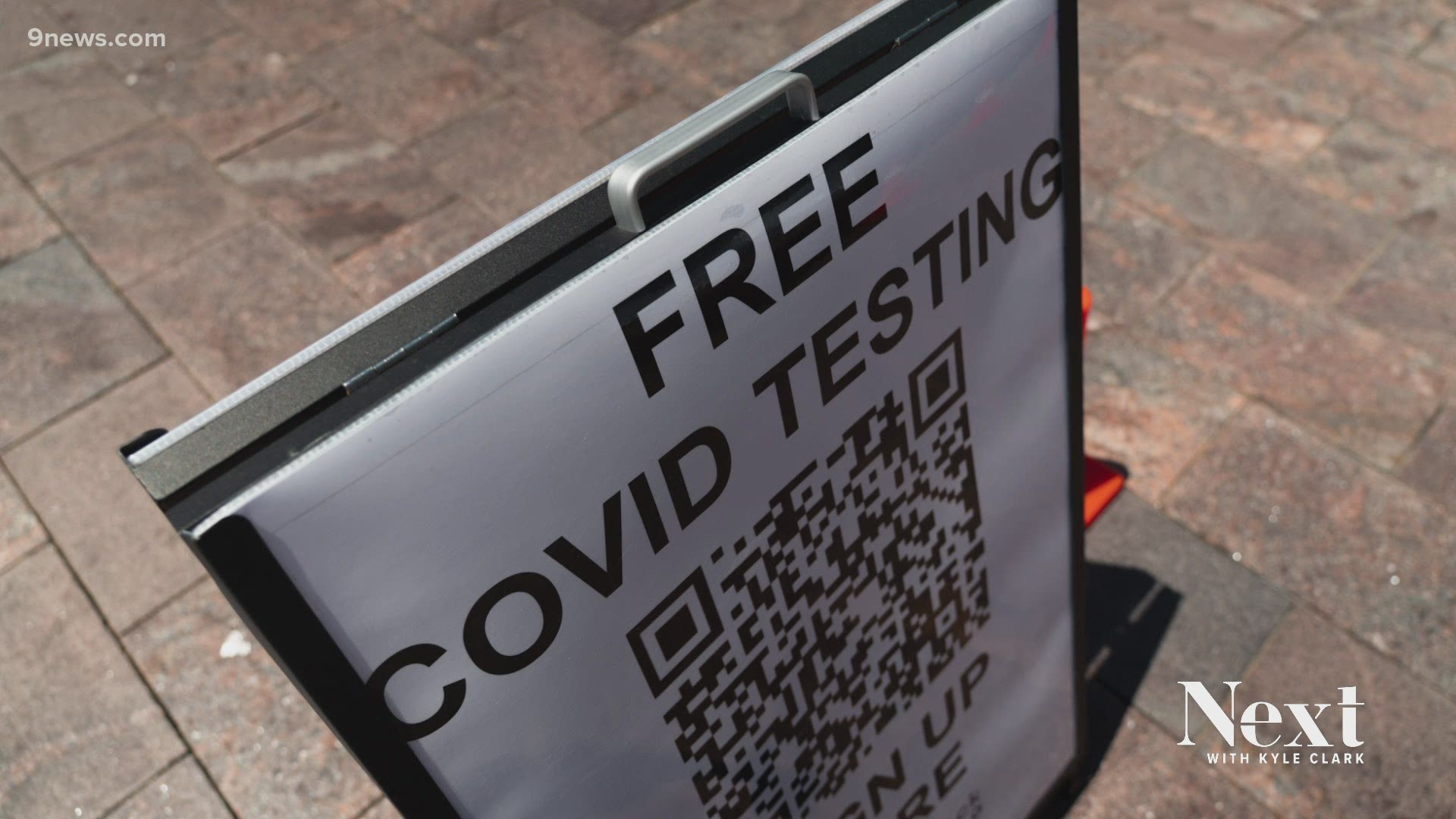DENVER — Thursday, the Colorado Department of Public Health and Environment (CDPHE) said while more people are being vaccinated in Colorado, the demand for shots has decreased.
This is happening before reaching herd immunity.
Infectious disease specialists are looking at what it will take to get there and what Colorado could look like if it doesn't happen.
The different scenarios
We talked to Dr. Richard Zane with UCHealth, Dr. Connie Price with Denver Health and Dr. Jim Neid with HealthOne.
The doctors said not reaching herd immunity was either a concern or a debatable issue, and described different scenarios that could play out.
"Another spike in the fall," said Zane. "People quarantining and people wearing masks for a long, long time."
"It is possible that this becomes a part of our normal respiratory viruses we encounter on a regular basis," said Price. "That is one of the latest theories, this will just be with us forever."
Neid even said to take a look at life now, this in-between phase of people fully vaccinated, partially vaccinated and others who haven't been vaccinated at all.
"I think we are experiencing the reality of a robust vaccination effort so far," he said. "That isn't complete."
"I think it could be more draconian than what we are seeing now," Zane said.
The impact on COVID restrictions
Zane's last point was important, because the doctors said the severity of the virus, hospitalizations, case counts, opening up Colorado further, and what COVID precautions are followed, all link back to vaccines. It could also help determine if we find ourselves back in a similar limbo.
"If vaccination rates are not high enough," said Neid. "And we try a certain level of opening but there is a bad outbreak, we will start to reel back and pull back."
"Every time it spreads, it's an opportunity to mutate," Price said.
What is the herd immunity threshold?
In an email to 9NEWS, CPDHE wrote:
"The latest modeling data estimates a community/herd immunity threshold of 67-80% in Colorado. There is uncertainty regarding the true herd immunity threshold, some of which is due to uncertainty regarding how transmissible (as measured by the basic reproductive number) the SARS-CoV-2 virus is now or may be in the future. As more transmissible variants become more common the herd immunity threshold increases. The modeling team estimates that approximately 40% of Coloradans are currently immune to SARS-CoV-2.
We all want to end this pandemic and return to normal. The easiest and fastest way to accomplish that is for all of us to get vaccinated as soon as possible. Colorado county-level data shows a clear correlation between high vaccination rates and low infection rates. We're starting to see population-level protection from these vaccines resulting in decreased transmission, but we still have a ways to go."
Thursday, the number of fully vaccinated Coloradans is around 35% of the entire state's population.
Final thoughts
All the doctors we talked to said they hope people will continue to get vaccinated and be educated if they have questions about the shots because the race to get vaccinated isn't over yet.
"Once you have it, you become an advocates, and hopefully a vocal advocate to show it's not about being right or wrong but about making the community safe," Neid said.
Zane told us accessibility is also a big factor and brought up the idea of mobile vaccine clinics at baseball games and other sports games, to make getting vaccinated easier.
Thursday, CDPHE said while demand has dropped off, people are still getting vaccinated.
Zane said it's also important to remember that Colorado isn't isolated in this and that if the rest of the country doesn't see high enough vaccination rates, that becomes an issue across the country.
The doctors also brought up a big factor will be cases among kids and vaccinations.
The U.S. Food and Drug Administration is expected to announce emergency use authorization for a younger age group to receive the Pfizer vaccine by next week.
RELATED: DPS won't require COVID-19 vaccines
SUGGESTED VIDEOS: Full Episodes of Next with Kyle Clark

